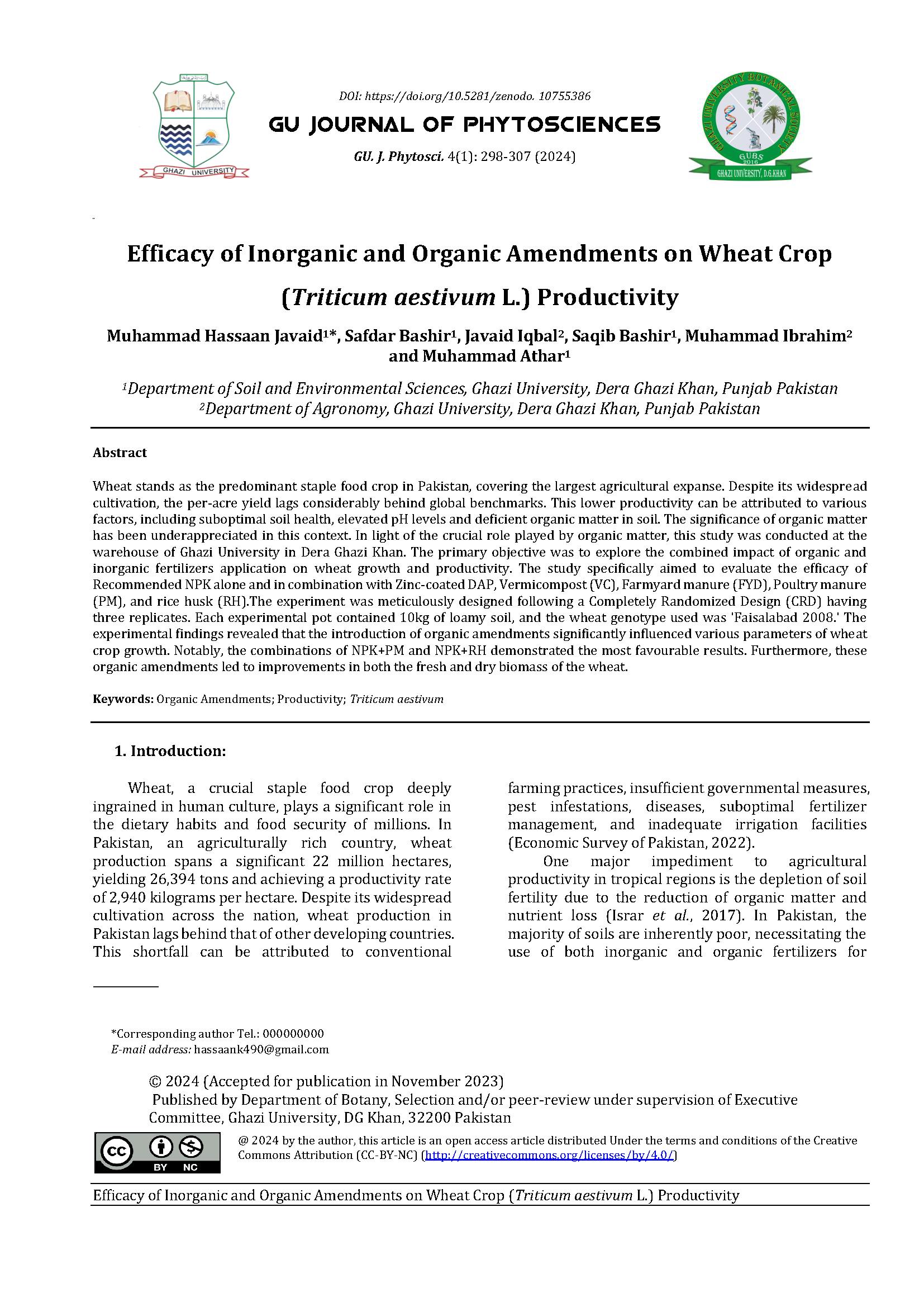Efficacy of Inorganic and Organic Amendments on Wheat Crop (Triticum aestivum L.) Productivity
Keywords:
Organic Amendments, Productivity, Triticum aestivumAbstract
Wheat stands as the predominant staple food crop in Pakistan, covering the largest agricultural expanse. Despite its widespread cultivation, the per-acre yield lags considerably behind global benchmarks. This lower productivity can be attributed to various factors, including suboptimal soil health, elevated pH levels and deficient organic matter in soil. The significance of organic matter has been underappreciated in this context. In light of the crucial role played by organic matter, this study was conducted at the warehouse of Ghazi University in Dera Ghazi Khan. The primary objective was to explore the combined impact of organic and inorganic fertilizers application on wheat growth and productivity. The study specifically aimed to evaluate the efficacy of Recommended NPK alone and in combination with Zinc-coated DAP, Vermicompost (VC), Farmyard manure (FYD), Poultry manure (PM), and rice husk (RH).The experiment was meticulously designed following a Completely Randomized Design (CRD) having three replicates. Each experimental pot contained 10kg of loamy soil, and the wheat genotype used was 'Faisalabad 2008.' The experimental findings revealed that the introduction of organic amendments significantly influenced various parameters of wheat crop growth. Notably, the combinations of NPK+PM and NPK+RH demonstrated the most favourable results. Furthermore, these organic amendments led to improvements in both the fresh and dry biomass of the wheat.

Downloads
Published
How to Cite
Issue
Section
License
Copyright (c) 2024 Authors

This work is licensed under a Creative Commons Attribution-NonCommercial 4.0 International License.
All works published by the GU Journal of Phytosciences are freely available to copy, distribute, transmit, and adapt the work provided the original work and source are appropriately cited under a CC BY-NC 4.0 International License. The CC BY-NC licence allows for maximum re-use of open-access materials, and the author has full copyright over their publication. Under this license, users are free to share (copy, distribute, and transmit) and adapt for any purpose, but not for any commercial use (read full legal code).
Under Creative Commons, authors retain copyright in their articles.




